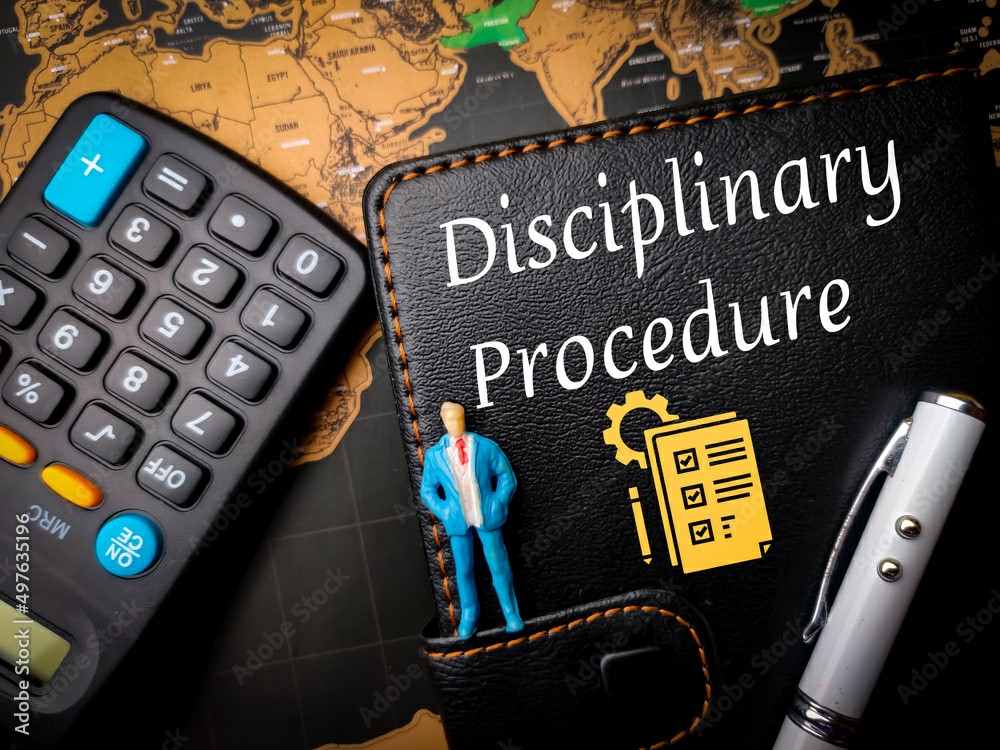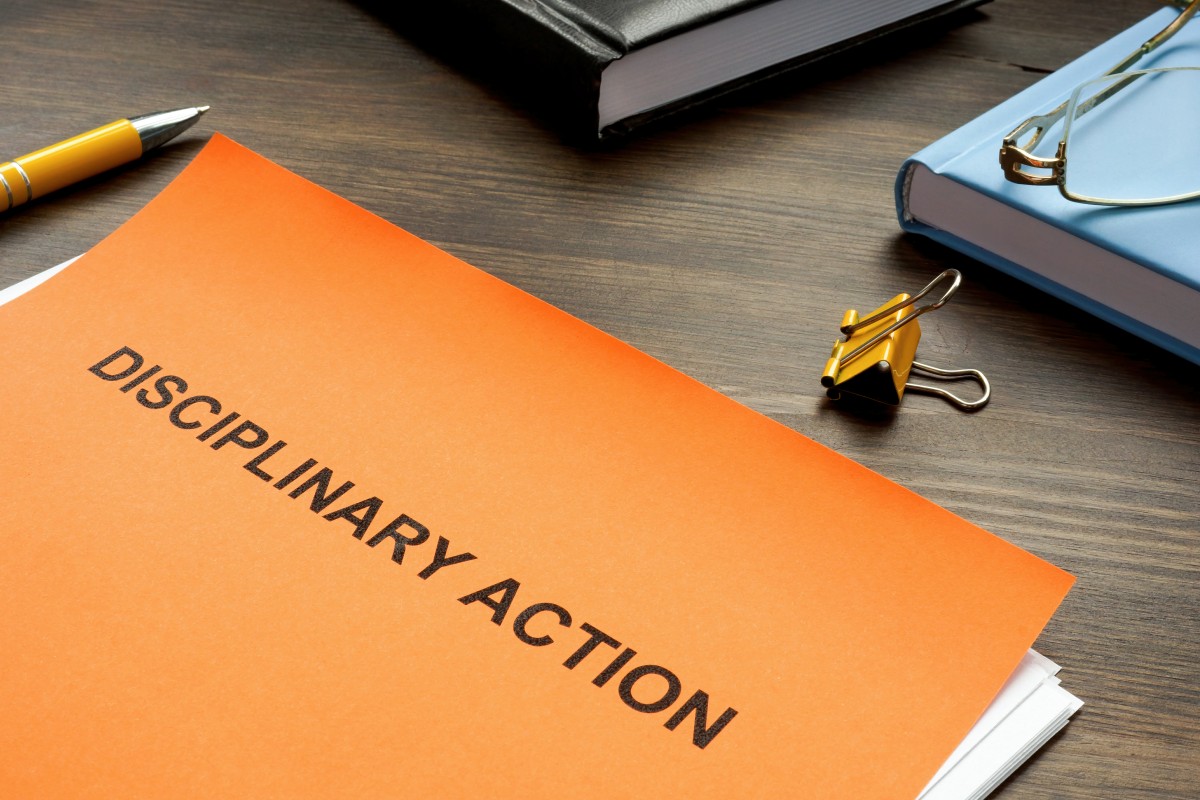
Disciplinary Procedures – An Employers Guide
Introduction to Disciplinary Procedures
Disciplinary procedures are critical in maintaining order, fairness and legal compliance within any organisation. These procedures not only help address misconduct or performance issues but also safeguard businesses against potential legal challenges. Implementing clear and fair disciplinary procedures reflects your commitment to justice and equality in the workplace.
Understanding and applying disciplinary procedures correctly plays a pivotal role in managing employee relations. It ensures that all actions taken are consistent, fair and legally sound. A well-managed process minimizes disruptions and maintains morale among your team. Let’s look at the essential aspects of disciplinary procedures, focusing on their importance for a harmonious and productive workplace.
Legal Framework Surrounding Disciplinary Procedures in the UK
The UK’s legal framework provides a clear structure for disciplinary procedures, primarily through the Employment Rights Act 1996 and the ACAS Code of Practice. These resources offer employers a blueprint for handling disciplinary situations with fairness and legality. Familiarizing yourself with these guidelines is crucial for any employer aiming to manage disciplinary issues effectively.
Employment Rights Act 1996
This act outlines the rights of employees, including fair treatment during disciplinary actions. It emphasizes the importance of giving employees a chance to respond to allegations, ensuring decisions are not one-sided.
ACAS Code of Practice on Disciplinary and Grievance Procedures
The ACAS Code of Practice serves as the benchmark for handling disciplinary and grievance procedures. It stresses the need for timely, clear and consistent processes. Adherence to the ACAS guidelines not only helps in achieving legal compliance but also in fostering trust and fairness within your organisation.
- Always conduct a thorough investigation before taking any disciplinary action.
- Ensure the employee receives a clear explanation of the alleged misconduct.
- Provide an opportunity for the employee to present their case at a hearing.
- Maintain detailed records of all steps taken during the disciplinary process.
- Offer the right to appeal against any disciplinary decision made.
Adhering to these principles ensures that disciplinary procedures not only meet legal standards but also support a fair, respectful workplace culture. As employers, understanding and applying these guidelines is essential for navigating disciplinary situations with confidence and integrity.
Key Steps in Conducting a Fair Disciplinary Procedure
In my experience as an employment lawyer, I find that understanding the steps in a disciplinary procedure empowers employers to act decisively and fairly. Each stage of the process requires careful attention to detail and adherence to principles of fairness and transparency. Let’s explore the critical steps necessary for a fair disciplinary procedure.
Investigation
Begin with a thorough investigation to gather all relevant facts. This foundational step ensures any subsequent action rests on solid ground, preventing misunderstandings and ensuring fairness.
Notification
Next, inform the employee of the issues uncovered. Providing clear, written notification avoids surprises and allows the employee to prepare their response adequately.
Hearing
Conduct a hearing where the employee can present their case. This face-to-face meeting is crucial for understanding both sides of the story.
Decision
After considering all evidence, make an informed decision. Ensure this decision is fair, consistent and proportionate to the findings of the investigation.
Right to Appeal
Finally, offer the employee the right to appeal against the decision. This step underscores your commitment to fairness and justice.
By following these steps, employers can navigate disciplinary procedures with confidence, knowing they have acted justly and in accordance with the law.
Common Mistakes Employers Make During Disciplinary Procedures
Even with the best intentions, employers can sometimes falter during disciplinary procedures. Recognizing and avoiding common mistakes is key to ensuring the process remains fair and legally compliant. Let me highlight some of the pitfalls to avoid.
- Failing to follow your own disciplinary policy can lead to claims of unfair treatment.
- Not keeping comprehensive records of the process leaves you vulnerable in case of disputes.
- Overlooking the employee’s right to be accompanied can invalidate the procedure.
- Making decisions before hearing the employee’s side of the story shows bias and unfairness.
Avoiding these errors is crucial for maintaining trust and respect in your workplace. It also protects your business from potential legal complications. Remember, fairness and transparency are your best tools in managing disciplinary procedures effectively.
The Impact of Mishandling Disciplinary Procedures
As an employment lawyer, I’ve witnessed first hand the consequences of mishandling disciplinary procedures. The repercussions extend beyond the immediate parties involved, affecting the entire organisation. A fair and legally compliant process is paramount, not only to mitigate legal risks but also to maintain a positive workplace culture. Let’s look at the potential impacts of mishandling these procedures.
Legal Challenges and Financial Liabilities
Mishandling disciplinary actions often leads to legal challenges. Employees may claim unfair dismissal or discriminatory treatment, resulting in costly litigation and potential financial liabilities for the employer. Such legal battles not only drain resources but also divert attention from core business activities.
Damage to Reputation
The reputation of your business is on the line with every disciplinary decision made. Mishandled procedures can lead to negative publicity, eroding trust with clients, partners and potential employees. Rebuilding a tarnished reputation takes time and effort, often more than it takes to handle the disciplinary process correctly in the first place.
Negative Impact on Employee Morale
The way you handle disciplinary matters sends a strong message to your team. Mishandling these situations can lead to decreased morale, increased turnover and a toxic workplace culture. It’s crucial to approach disciplinary procedures with fairness and transparency to maintain a positive and productive work environment.
Recognising the far-reaching implications of mishandling disciplinary procedures underscores the importance of proper management. Employers must strive for fairness, legality and consistency to avoid these negative outcomes.
Best Practices for Updating and Communicating Your Disciplinary Policy
Ensuring your disciplinary policy is up-to-date and effectively communicated is crucial for maintaining a fair and compliant workplace. As laws and best practices evolve, so too should your policies. Here, I will outline best practices for reviewing and communicating your disciplinary policy to your team.
Regularly Review and Update Policies
Stay informed about changes in employment law and best practices. Regular reviews of your disciplinary policy ensure it remains compliant and relevant. Incorporate feedback from employees and lessons learned from past disciplinary cases to refine and improve your approach.
Effective Communication Strategies
Clear communication of your disciplinary policy is as important as the policy itself. Use multiple channels to disseminate policy updates, including staff meetings, email announcements and training sessions. Ensure every employee understands the policy and their rights and responsibilities under it.
Adopting these best practices not only helps in managing disciplinary issues more effectively but also reinforces a culture of fairness and respect within your organization. Keeping your disciplinary policy current and clearly communicated is essential for a harmonious workplace.
Disciplining Employee with Mental Health Issues
Alcohol Abuse at Work
Employee Gross Misconduct in the WorkPlace
Call John Bloor at EBS Law on 01625 87 4400 if you are an employer and need free Employment Law Advice.

